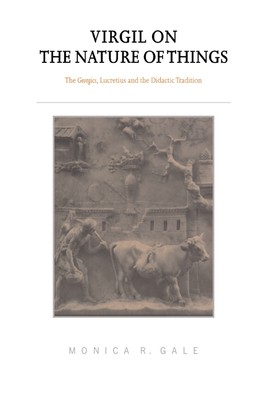
- We will send in 10–14 business days.
- Author: Monica R Gale
- Publisher: Cambridge University Press
- ISBN-10: 0521028965
- ISBN-13: 9780521028967
- Format: 15.2 x 22.9 x 1.9 cm, minkšti viršeliai
- Language: English
- SAVE -10% with code: EXTRA
Reviews
Description
Virgil's agricultural poem, the Georgics, forms part of a long tradition of didactic epic going back to the archaic poet Hesiod. This book explores the relationship between the Georgics and earlier works in the didactic tradition, particularly Lucretius' De Rerum Natura ("On the Nature of Things"). It is the first comprehensive study of Virgil's use of Lucretian themes, imagery, ideas and language; it also proposes a new reading of the poem as a whole, as a confrontation between the Epicurean philosophy of Lucretius and the opposing world views of his predecessors.
EXTRA 10 % discount with code: EXTRA
The promotion ends in 21d.23:31:47
The discount code is valid when purchasing from 10 €. Discounts do not stack.
- Author: Monica R Gale
- Publisher: Cambridge University Press
- ISBN-10: 0521028965
- ISBN-13: 9780521028967
- Format: 15.2 x 22.9 x 1.9 cm, minkšti viršeliai
- Language: English English
Virgil's agricultural poem, the Georgics, forms part of a long tradition of didactic epic going back to the archaic poet Hesiod. This book explores the relationship between the Georgics and earlier works in the didactic tradition, particularly Lucretius' De Rerum Natura ("On the Nature of Things"). It is the first comprehensive study of Virgil's use of Lucretian themes, imagery, ideas and language; it also proposes a new reading of the poem as a whole, as a confrontation between the Epicurean philosophy of Lucretius and the opposing world views of his predecessors.


Reviews